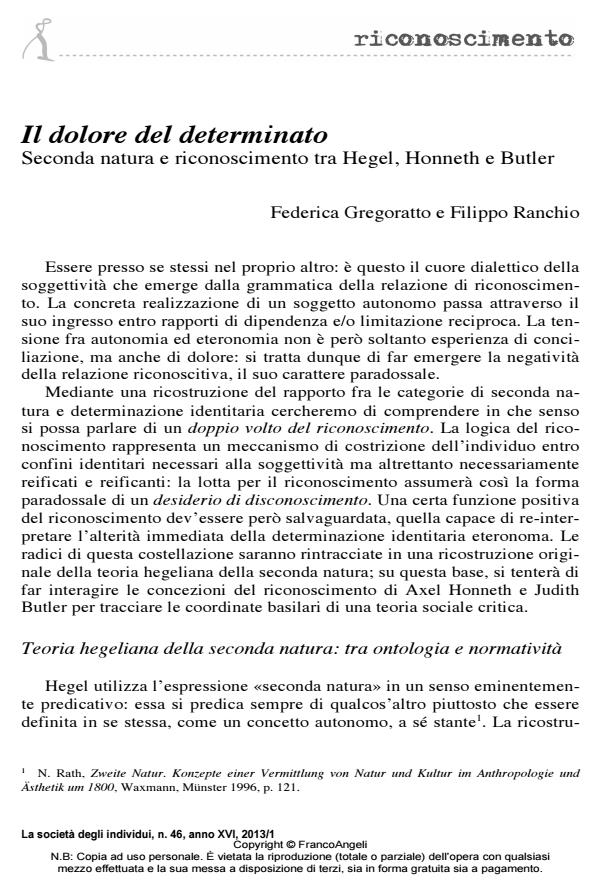Il dolore del determinato. Seconda natura e riconoscimento tra Hegel, Honneth e Butler
Titolo Rivista SOCIETÀ DEGLI INDIVIDUI (LA)
Autori/Curatori Federica Gregoratto, Filippo Ranchio
Anno di pubblicazione 2013 Fascicolo 2013/46
Lingua Italiano Numero pagine 14 P. 155-168 Dimensione file 170 KB
DOI 10.3280/LAS2013-046011
Il DOI è il codice a barre della proprietà intellettuale: per saperne di più
clicca qui
Qui sotto puoi vedere in anteprima la prima pagina di questo articolo.
Se questo articolo ti interessa, lo puoi acquistare (e scaricare in formato pdf) seguendo le facili indicazioni per acquistare il download credit. Acquista Download Credits per scaricare questo Articolo in formato PDF

FrancoAngeli è membro della Publishers International Linking Association, Inc (PILA), associazione indipendente e non profit per facilitare (attraverso i servizi tecnologici implementati da CrossRef.org) l’accesso degli studiosi ai contenuti digitali nelle pubblicazioni professionali e scientifiche.
This paper aims at briefly reconstructing Hegel’s theory of «second nature» in both its ontological and normative dimension, and at figuring out how the logic of intersubjective recognition can be interpreted within this framework. Such a constellation will be furthermore investigated referring to Honneth’s and Butler’s paradigms. The interaction between the «normative» dimension of the first and the «anormative» strategy of the second shows the double-track structure of recognition as «second nature» (its «double face»), which directly affects the constitution of the autonomy (agency) of the subjects - in particular of their identities. This double-structure discloses the dialectics between autonomy and heteronomy, freedom and constraint, thus furthermore sketching out the guidelines for a critical theory of domination.
Federica Gregoratto, Filippo Ranchio, Il dolore del determinato. Seconda natura e riconoscimento tra Hegel, Honneth e Butler in "SOCIETÀ DEGLI INDIVIDUI (LA)" 46/2013, pp 155-168, DOI: 10.3280/LAS2013-046011